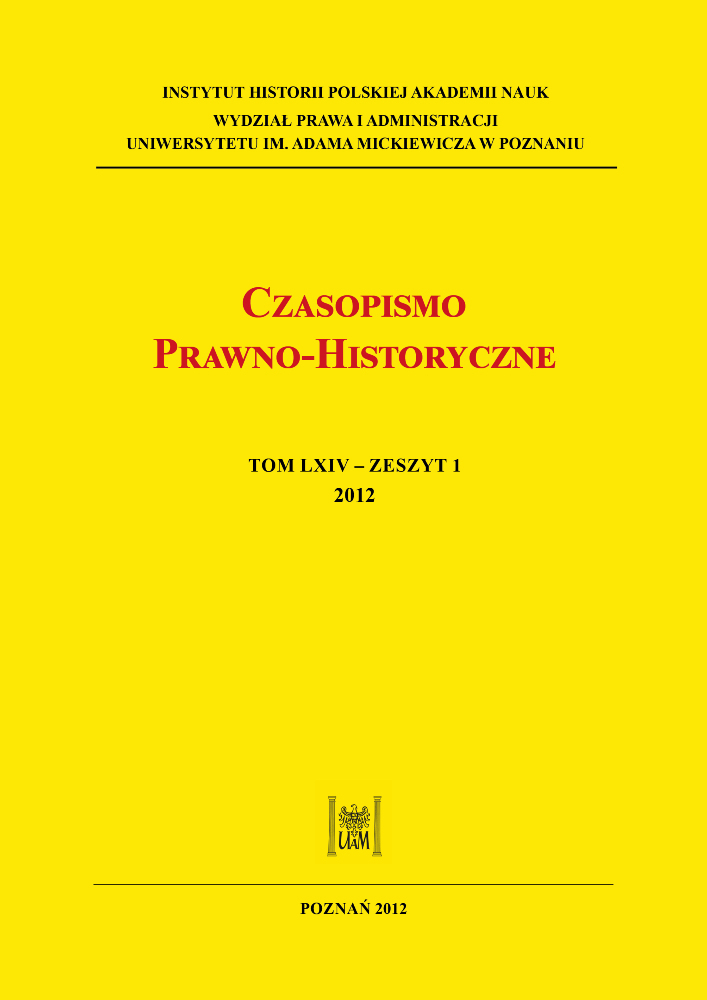Abstract
The history and formation of the European legal culture that had been developing and taking shape since the Middle Ages when universalism manifested itself as ius commune and seemed to be a satisfactory solution, has been marked with the appearance of a trend called ‘legal humanism’ which developed in response to the humanistic Renaissance postulates. While humanism itself pertained to arts and science of the Renaissance period, legal humanism that emerged centuries later, challenged the medieval interpretation of Justinian texts and postulated the rejection of the mos italicus methods described as praemitto, scindo, summo casumque figuro – praelego, casus, commodo, obiicio (Math. Grib. De meth, 3.94-98). The supporters of the new humanistic jurisprudence advocated recognition of Roman law as an element of the research into the Antiquity. As a result, ancient texts underwent a certain ‘purification’ and were subsequently used for the teaching of Roman law based on subsequent „Glosses and Commentaries”. Critical reviews of the fundamental sources of law as well as the first translations of till then unknown Greek texts were also attempted. That all was possible because the jurists of that new era had a much more comprehensible education and linguistic skills and were able to read texts in Greek and finally break away with the medieval impasse Graeca sunt, non leguntur, going beyond the „judicial Bible” of the compilation of Justinian texts only, searching for new and often multi-aspect meanings and a true understanding of the Ancient World. This new approach to Roman law had also changed the attitude to legal studies which ceased to be seen as merely updating the existing laws i.e. serving the practice. Roman law was finally recognised as a historic phenomenon, a product of its times that evolved together with the changing world, and the study of Roman law became an aim and objective of its own. Such an approach quickly found followers in all Western Europe and replaced the exegetic commentaries with a new form – a treaty that compared the theory of law with the existing laws on the basis of its historic context. An author of a legal academic paper was no longer a mere executor and commentator of ius scriptum, but, being a jurist of humanistic views, transformed into a searcher of pure law, an expert of both the Antiquity and the contemporary World. As François Baudouin put it: sine historia caeca est iurisprudentia (De Institutione historiae universae, I, 609).License
Copyright
© by Faculty of Law and Administration, Adam Mickiewicz University, Poznań, 2012
OPEN ACCESS




